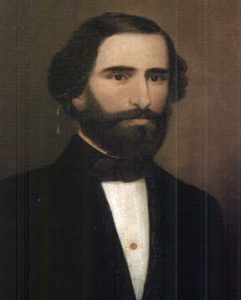Podcast: Play in new window | Download (Duration: 1:40:54 — 113.7MB) | Embed
Subscribe: Spotify | TuneIn | RSS | More
Podcast (https-countermelody-blubrry-net-feed-podcast): Play in new window | Download (Duration: 1:40:54 — 113.7MB) | Embed
Subscribe: RSS
The Italian-American lyric coloratura soprano Anna Moffo (1932-2006) is, for many, one of the great singers of the past century. My first exposure to this artist was one of two, frankly, disastrous recordings released in the mid-1970s, in which the voice was a mere shadow of its former self, and in which her vocal defects and mannerisms had overtaken the intrinsic beauty of her voice. But there are so many exceptional qualities to Moffo as an artist, musician, and media star, that I felt compelled to do a frank reappraisal of her contribution to the lyric art. And am I glad that I did! I discovered an artist of great integrity who, in her best work, attained a similar level to any of the other great singers performing during that period. Unlike any other opera singer that I can think of, she conquered three distinct markets with equal success: first in Italy (where she rose to overnight stardom in the late 1950s and went on in the 1960s to become the star of her own eponymous television series); then in the United States throughout the 1960s; and finally, in the late 1960s and 70s, in Germany. But hers is also a cautionary tale of “too much, too soon” and the potentially destructive power of the media which has significance also in today’s opera world. Throughout the episode, live and studio examples of Moffo’s work, both bad and (mostly) good over the course of more than twenty years, are offered to support my discussion of her importance and influence as an artist, one that continues to this day. Vocal guest stars include tenors Carlo Bergonzi, Rudolf Schock, Giuseppe di Stefano, and Sergio Franchi, and musical collaborators include Tullio Serafin, Gerald Moore, Lorin Maazel, Hans Rosbaud, Fernando Previtali, Lehman Engel, Oliviero de Fabritiis, René Leibowitz, Kurt Eichhorn, Berislav Klobučar, and Franco Ferrara. For those who love Moffo, for those who hate her, and for those who find themselves somewhere in between, this episode is (dare I say it?) required listening.
Countermelody is a podcast devoted to the glory and the power of the human voice raised in song. Singer and vocal aficionado Daniel Gundlach explores great singers of the past and present focusing in particular on those who are less well-remembered today than they should be. Daniel’s lifetime in music as a professional countertenor, pianist, vocal coach, voice teacher, and journalist yields an exciting array of anecdotes, impressions, and “inside stories.” At Countermelody’s core is the celebration of great singers of all stripes, their instruments, and the connection they make to the words they sing. By clicking on the following link (https://linktr.ee/CountermelodyPodcast) you can find the dedicated Countermelody website which contains additional content including artist photos and episode setlists. The link will also take you to Countermelody’s Patreon page, where you can pledge your monthly support at whatever level you can afford. Bonus episodes available exclusively to Patreon supporters are currently available and further bonus content including interviews and livestreams is planned for the upcoming season.

